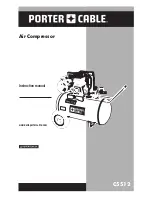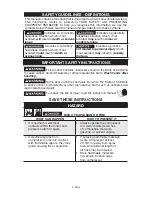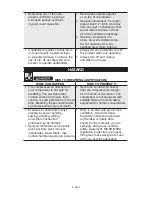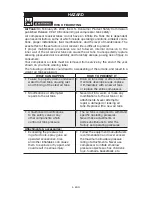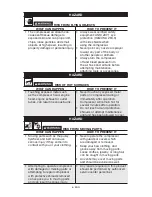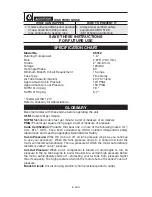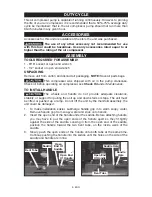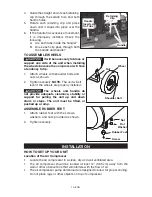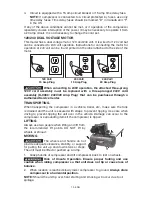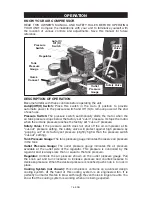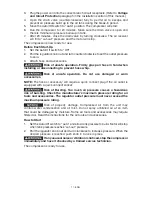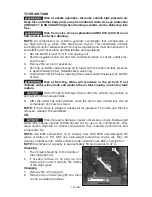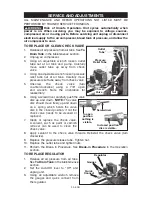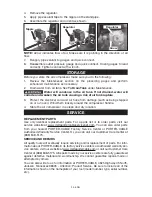
8- ENG
RISk FROM NOISE
WHAT CAN HAPPEN
HOW TO PREVENT IT
• Under some conditions and duration
of use, noise from this product
may contribute to hearing loss.
• Always wear certified safety
equipment: ANSI S12.6
(S3.19) hearing protection.
SAVE THESE INSTRUCTIONS
FOR FUTURE USE
SPECIFICATION CHART
Model No.
C5512
Running Horsepower
1.6 *
Bore
2.875" (73.0 mm)
Stroke
2" (50.8 mm)
Voltage
120/240
Hz-Single Phase
60
Minimum Branch Circuit Requirement
15 amps
Fuse Type
Time Delay
Air Tank Capacity (Gallon)
20 (75.7 liters)
Approximate Cut-in Pressure
120 PSIG
Approximate Cut-out Pressure
150 PSIG
SCFM @ 40 psig
7.3 *
SCFM @ 90 psig
5.7 *
* Tested per ISO 1217
Refer to Glossary for abbreviations.
GLOSSARY
Become familiar with these terms before operating the unit.
CFM: Cubic feet per minute.
SCFM: Standard cubic feet per minute; a unit of measure of air delivery.
PSIG: Pounds per square inch gauge; a unit of measure of pressure.
Code Certification: Products that bear one or more of the following marks: UL
®
,
CUL, ETL
®
, CETL, have been evaluated by OSHA certified independent safety
laboratories and meet the applicable Standards for Safety.
Cut-In Pressure:
While the motor is off, air tank pressure drops as you continue
to use your accessory. When the tank pressure drops to a certain low level the
motor will restart automatically. The low pressure at which the motor automatically
restarts is called "cut-in" pressure.
Cut-Out Pressure:
When an air compressor is turned on and begins to run, air
pressure in the air tank begins to build. It builds to a certain high pressure before
the motor automatically shuts off - protecting your air tank from pressure higher
than its capacity. The high pressure at which the motor shuts off is called "cut-out"
pressure.
Branch Circuit: Circuit carrying electricity from electrical panel to outlet.

